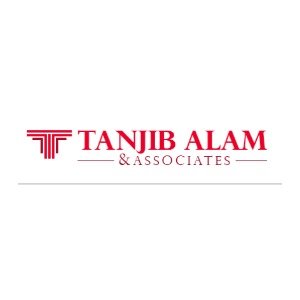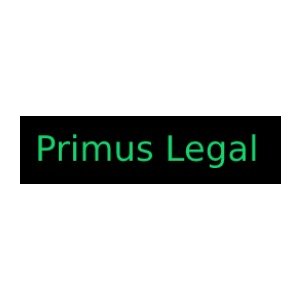Best Natural Resources Lawyers in Dhaka
Share your needs with us, get contacted by law firms.
Free. Takes 2 min.
List of the best lawyers in Dhaka, Bangladesh
About Natural Resources Law in Dhaka, Bangladesh
Dhaka, the capital city of Bangladesh, is a hub of diverse natural resources that include waterways, wetlands, and fertile agricultural lands. Natural resources law in Dhaka primarily focuses on the management and regulation of these resources to ensure their sustainable use. This branch of law is concerned with governing resource allocation, land use, and maintaining ecological balance amidst rapid urbanization and industrial growth. The legal framework aims to protect the environment while fostering economic development, requiring policies that harmonize natural conservation with human needs.
Why You May Need a Lawyer
There are various situations where individuals or businesses may require legal assistance related to natural resources in Dhaka:
- If you are a property developer, navigating the legal requirements for land use and environmental impact assessments can be complex, requiring expert advice.
- Businesses involved in the extraction or use of natural resources might need legal guidance to comply with environmental regulations and licensing requirements.
- Farmers and agricultural businesses may face legal issues concerning water rights or sustainable agricultural practices.
- Individual citizens or advocacy groups may require legal support to contest or address environmental violations or land disputes.
- NGOs working in the field of environmental conservation might need legal advice on regulatory compliance or legislative advocacy.
Local Laws Overview
The local laws governing natural resources in Dhaka involve a combination of environmental legislation, land use regulations, and specific acts concerning different resources such as water, minerals, and forests:
- Environment Conservation Act: Governs activities impacting the environment, mandating environmental clearances and assessments for development projects.
- Water Act: Regulates the use and management of water resources, addressing issues such as pollution control and water rights.
- Land Management Ordinances: Provide guidelines for land use and procurement, zoning regulations, and dispute resolution processes.
- Forest Act: Offers protection for forest resources, focusing on conservation, and sustainable use.
Frequently Asked Questions
What is the role of natural resource law in Dhaka?
Natural resource law in Dhaka regulates the use, management, and protection of the environment and natural resources while balancing economic development needs.
Do I need a permit for construction in an ecologically sensitive area?
Yes, any construction or development in ecologically sensitive areas usually requires an environmental clearance and specific permits under the Environment Conservation Act.
Who is responsible for enforcing natural resource laws in Dhaka?
The enforcement of natural resource laws is primarily the responsibility of the Department of Environment and other relevant government bodies.
How can I address water pollution affecting my property?
Contact the Department of Environment to report water pollution. A lawyer can help you navigate legal pathways to seek remedies or compensation.
What legal steps should I take for a land dispute involving natural resources?
Consult with a lawyer who specializes in land and natural resource disputes to review your case and advise you on the legal action steps that can be taken, including mediation or litigation.
Are there laws regulating the use of public waterways?
Yes, the Water Act regulates the use and protection of public waterways, imposing restrictions on pollution and unauthorized use.
Can I challenge a developmental project threatening local resources?
You, or an advocacy group, can file a case if the project violates environmental laws or lack necessary assessments. Legal counsel is crucial in these cases.
How does the law protect wetlands in Dhaka?
The Wetlands Protection legislation provides a framework to preserve, manage, and sustainably use wetland resources to maintain ecological balance.
What should I do if my agricultural activities are being affected by neighboring industrial emissions?
Seek legal advice to potentially file a complaint with the local environmental authorities. Your lawyer can help determine the best legal course of action.
Are there incentives for practicing sustainable development in Dhaka?
Yes, the government often provides incentives and support for businesses and individuals practicing sustainable development, seeking to encourage eco-friendly practices.
Additional Resources
For further assistance on legal matters related to natural resources in Dhaka, you may contact the following organizations:
- Department of Environment, Bangladesh
- Ministry of Land, Bangladesh
- Bangladesh Environmental Lawyers Association (BELA)
- Natural Resource Management programs offered by local universities
- Environmental NGOs and advocacy groups involved in conservation
Next Steps
If you require legal assistance related to natural resources, here are some steps to consider:
- Research Potential Lawyers: Look for lawyers or legal firms specializing in environmental and natural resource law. Checking their experience and previous case history can be beneficial.
- Consultation: Schedule a consultation to discuss your specific situation, ascertain the legal framework, and understand potential actions.
- Gather Documentation: Organize relevant documents, including property deeds, environmental assessments, or any notifications from government bodies, to present a well-founded case to your lawyer.
- Engage a Lawyer: Once confident in your choice of representative, engage your lawyer to officially start handling your case or issue.
Lawzana helps you find the best lawyers and law firms in Dhaka through a curated and pre-screened list of qualified legal professionals. Our platform offers rankings and detailed profiles of attorneys and law firms, allowing you to compare based on practice areas, including Natural Resources, experience, and client feedback.
Each profile includes a description of the firm's areas of practice, client reviews, team members and partners, year of establishment, spoken languages, office locations, contact information, social media presence, and any published articles or resources. Most firms on our platform speak English and are experienced in both local and international legal matters.
Get a quote from top-rated law firms in Dhaka, Bangladesh — quickly, securely, and without unnecessary hassle.
Disclaimer:
The information provided on this page is for general informational purposes only and does not constitute legal advice. While we strive to ensure the accuracy and relevance of the content, legal information may change over time, and interpretations of the law can vary. You should always consult with a qualified legal professional for advice specific to your situation.
We disclaim all liability for actions taken or not taken based on the content of this page. If you believe any information is incorrect or outdated, please contact us, and we will review and update it where appropriate.

















